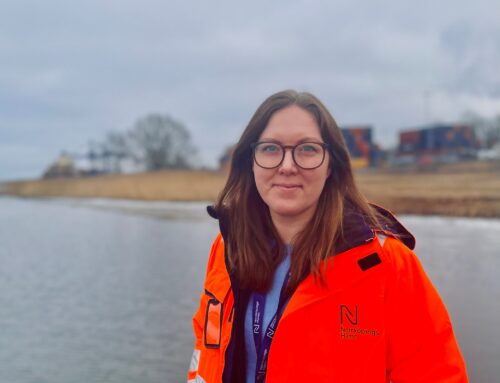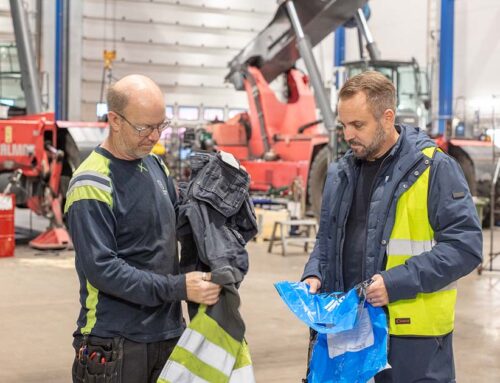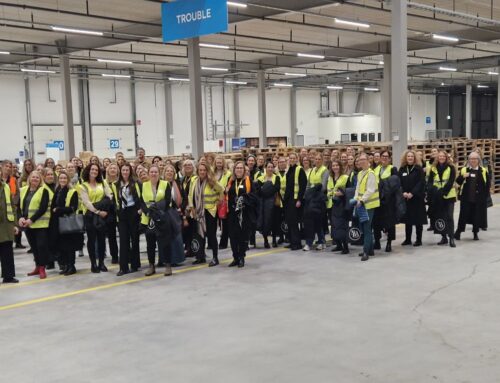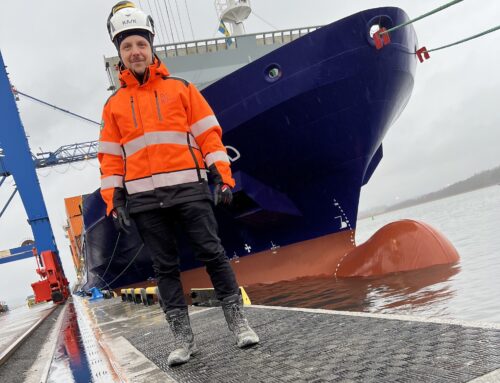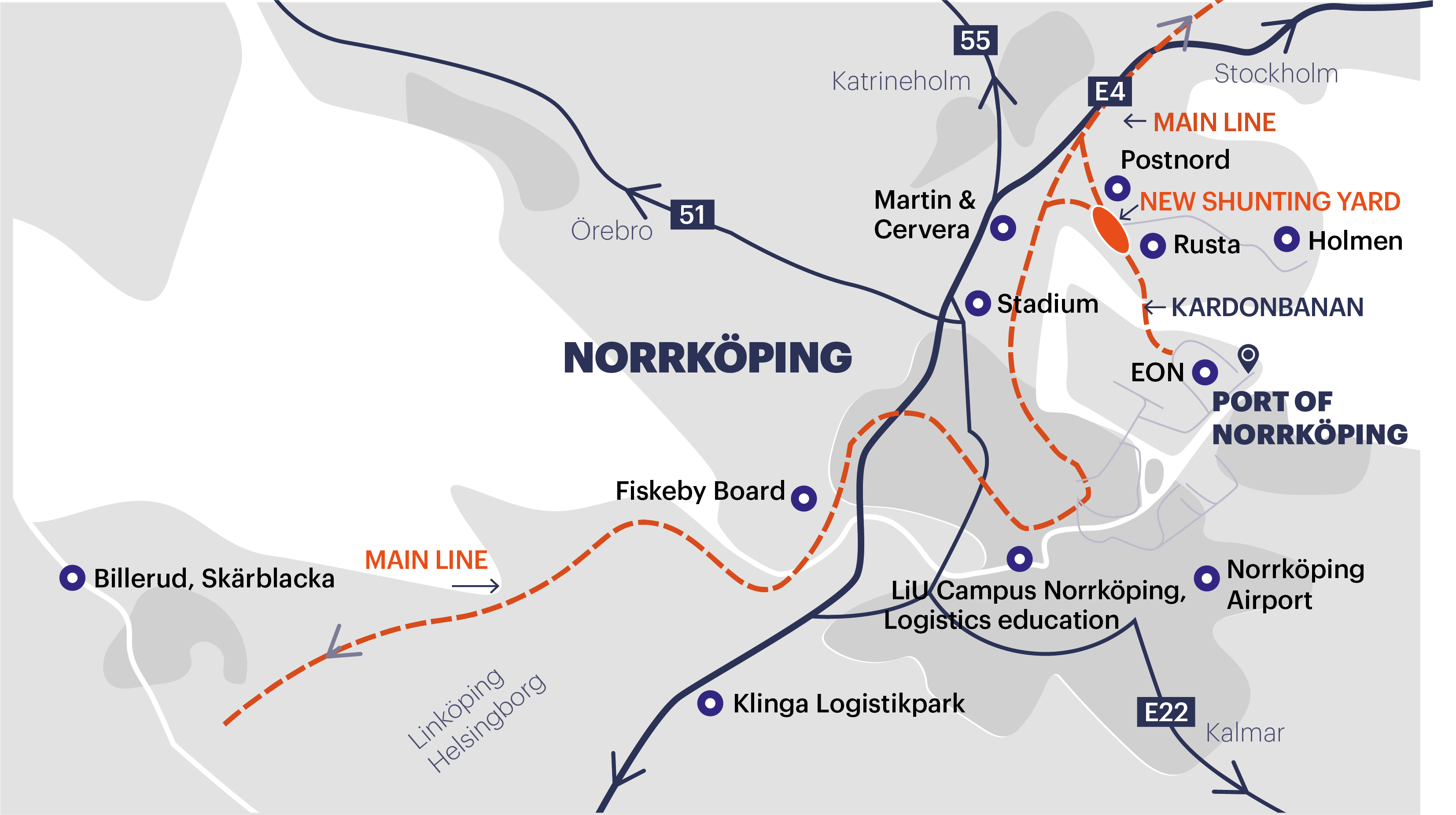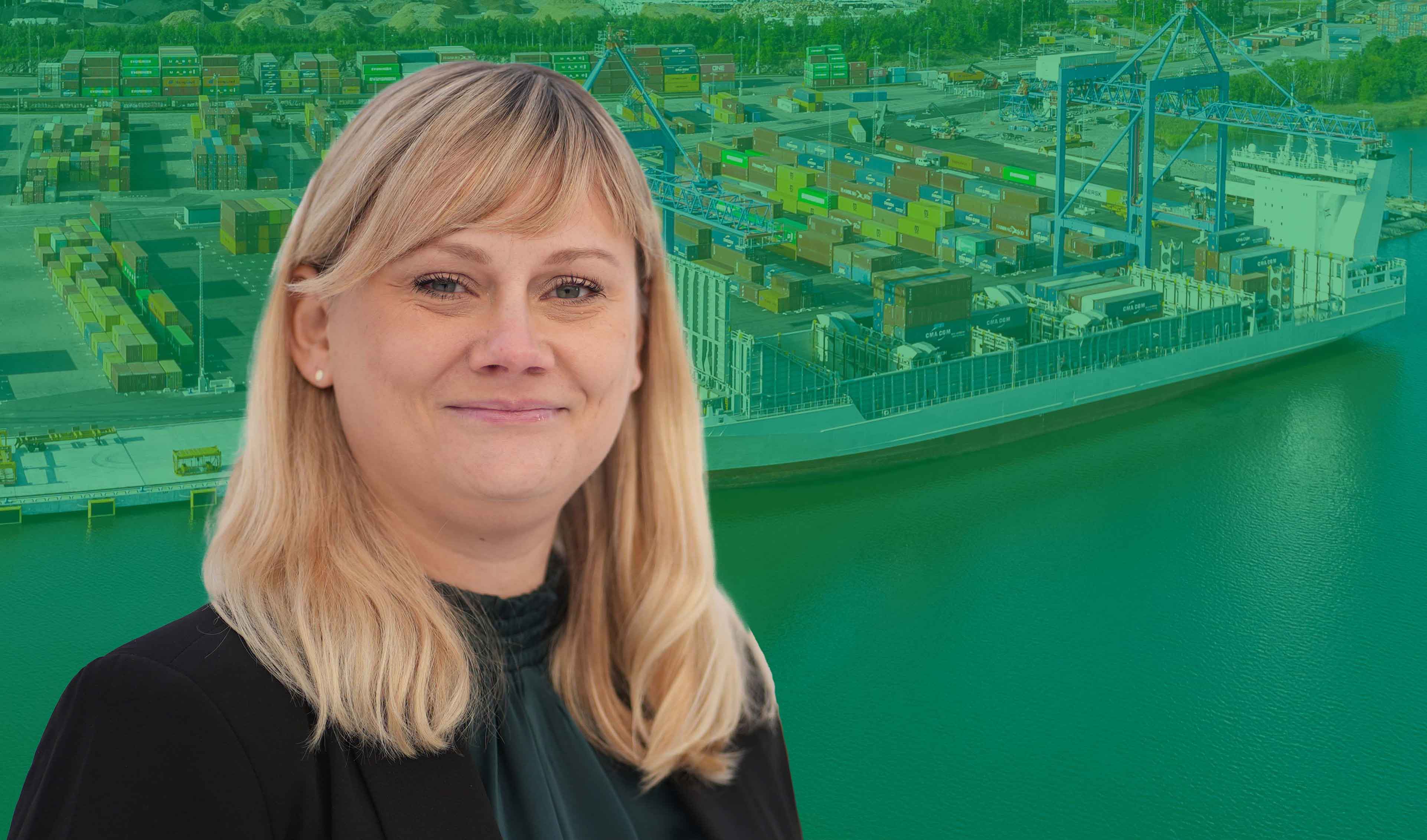
2024-06-12
The Port of Norrköping has long been working on transitioning its operations to achieve fossil-free operations by 2030. For example, all machinery today is powered by electricity or HVO. However, to meet our own, national, and global climate goals and remain competitive in times when regulations are changing and customer demands are increasing, we need to reassess our way of working. Therefore, we have adopted a new approach to our transition.
“In a world where environmental challenges and sustainability have become central issues, it is crucial for the Port of Norrköping to accelerate our transition journey. We have developed a new and more far-reaching transition strategy. This strategy is not only key to actively contributing to Sweden’s and the world’s climate goals, but also to improving the environment and public health in the local area. The transition will become a natural part of our entire operation, from budgeting to processes and working methods,” says Eva-Lotte Wondollek, project manager and responsible for leading the work on the transition strategy.
A future-proofed electrical grid is crucial
“The energy issue is pivotal and both vast and complex. Thanks to early and constructive dialogue with our supplier EON, we can meet future increased power demands,” Eva-Lotte explains.
New technology and knowledge are required
“The transition involves adopting new technology, necessitating the updating of our employees’ skills. The shift to more electrically powered machinery will require a robust electrical distribution infrastructure and specific technical expertise in our workshop. Additionally, the increased use of autonomous equipment will impact the development of planning systems and behavioural patterns within the port area. To streamline operations and reduce energy consumption, we have several ongoing initiatives and projects, including investments in more efficient equipment and fuel-saving activities, to reduce consumption by 5% per year,” continues Eva-Lotte.
Customer expectations necessitate collaboration with other ports
“Ports play a crucial role in society’s climate transition by offering solutions that support electrification. Customers increasingly expect us to help them reduce their emissions. Swedish ports have a particularly important role in maritime transition, as shipping companies prepare their vessels to receive electricity at the quay, a requirement mandated by our operational permit from 2030 onwards. Moreover, new fuels like e-methanol and green ammonia are being developed to replace current fossil fuels in shipping. We are already collaborating, for example, in the project Sustainable Flow , which will provide us and our customers with substantial support towards our goal,” concludes Eva-Lotte.

